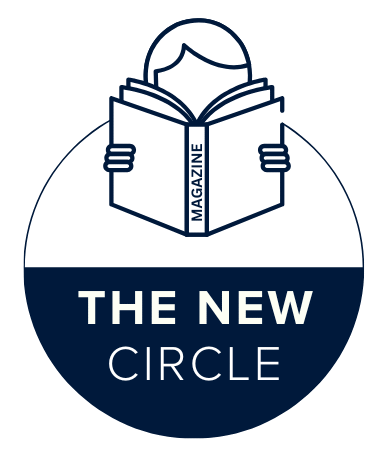Key Takeaways
- Building good oral health habits can help prevent cavities, gum disease, and costly dental procedures.
- Diet, daily care, and regular checkups are the foundation of a healthy mouth.
- Families can make dental hygiene fun and engaging for all ages.
- Learning new research about oral care can help you protect your smile better.
Why Oral Health Matters for Everyone
A healthy smile reflects much more than appearance—it’s a window into your overall well-being. Poor oral health can lead to issues like cavities, gum disease, and even heart problems. Neglecting dental care can make daily activities like eating and speaking challenging, erode self-esteem, and result in costly interventions later. Planning for regular dental checkups and choosing the right coverage ensures your family is protected for the long haul. Exploring family dental options from Delta Dental is one smart way to support consistent care for everyone in your household.
According to the Centers for Disease Control and Prevention (CDC), nearly half of adults over the age of 30 already show signs of gum disease, which is both preventable and manageable with simple, daily habits. Addressing oral health proactively helps prevent painful dental concerns and safeguards your family’s health overall.
Core Habits for Healthy Teeth and Gums
Establishing a set of straightforward routines significantly boosts oral health. The foundation is brushing your teeth twice a day with fluoride toothpaste and using dental floss or interdental brushes to clean the spaces between teeth. Brushing should last for at least two minutes and reach every tooth surface. You should update your toothbrush every three to four months, sooner if the bristles fray.
Setting habits as a family—such as brushing together before bedtime or reminding one another—reinforces consistency. For busy schedules, adding reminders on your phone or the bathroom mirror can help keep everyone on track.
Nutrition for Stronger Smiles
Nutrition plays an essential role in oral health. High-sugar foods and drinks feed harmful bacteria in the mouth, resulting in acids that erode enamel and cause cavities. Likewise, acidic beverages like soft drinks or fruit juice can speed up decay. Instead, offering crunchy vegetables, fiber-rich whole grains, and dairy products supports enamel health.
Calcium from milk and cheese, for example, helps rebuild and protect tooth enamel. In contrast, fibrous foods like apples help naturally clean teeth and stimulate saliva, your mouth’s built-in defense system. Consult reliable selections like the Healthline guide to healthier teeth for more nutrition-based dental tips.
ALSO READ: The Tek-102 Breakthrough: Is This the Turning Point for Rett Syndrome?
Family-Friendly Approaches to Dental Care
Getting the whole family motivated for dental care can be a lot easier and even fun when you tailor routines to each age group. Young children may enjoy choosing toothbrushes in their favorite colors or with popular characters, making brushing feel special. Try singing songs or using a two-minute timer to ensure correct brushing time.
Highlighting the positive effects of oral hygiene on appearance, breath, and sports performance can increase buy-in among older children and teenagers. Turning brushing and flossing into friendly family challenges (with a reward system, such as stickers or extra storytime) helps reinforce consistency without nagging. There are also educational games and hygiene apps designed to make oral care interactive and engaging for children of all ages.
How Technology Is Changing Oral Care
Technology continues to transform and enhance daily dental routines at home significantly. Smart toothbrushes now synchronize seamlessly with mobile apps, providing users with real-time feedback on their brushing habits, including brushing duration, pressure applied, and coverage areas. These devices also send reminders to replace toothbrush heads at appropriate intervals, promoting optimal oral hygiene. Many families discover that these innovative devices motivate kids and adults alike to brush longer, more thoroughly, and with greater consistency, leading to improved dental health overall.
Advances in dental technology further include teledentistry, a revolutionary approach that allows patients to consult with licensed dentists remotely via secure video calls and digital platforms. This service is especially beneficial for addressing concerns that do not require a physical visit, such as post-treatment follow-ups, dental advice, or quick assessments. These digital innovations have increased accessibility to professional dental care, reduced the need for in-person visits, and promoted more proactive, preventative oral health practices for everyone, regardless of age or location.
Resources and Tools for Smarter Care
Staying informed is essential for building lifelong oral health. Comprehensive guides are available from reputable organizations like the CDC Oral Health page and MouthHealthy by the American Dental Association. These websites offer downloadable charts, tips, and up-to-date news suited for families, children, and adults.
The journey to a healthier smile is ongoing, but with daily commitment, smart technology, and trusted resources, you can protect your family’s teeth for years to come.
Common Myths and Facts About Oral Health
- Myth: Baby teeth don’t matter.
- Fact: Healthy baby teeth are critical for guiding permanent teeth into position and building lifelong habits.
- Myth: Hard brushing cleans better.
- Fact: Brushing gently does a more thorough job and prevents enamel wear or gum recession.
- Myth: Only sugar causes cavities.
- Fact: Acidic foods and drinks (like citrus juices or sodas) also play a major role in tooth decay.
Making Routine Dental Checkups Easy
While maintaining daily care at home is absolutely vital for your family’s dental health, it should be complemented with regular dental checkups offered by professionals. Scheduling these appointments during times when your family is least stressed or busiest, such as during school breaks, early mornings, or weekends, can help ensure better attendance. Many dental offices now send out appointment reminders via text message or email, making it more convenient to remember and plan for upcoming visits.
Kids and adults alike may sometimes feel anxious or nervous about dental procedures. It’s important to be open about these feelings with your dentist, who can then suggest various comfort measures and preventive options to ease anxiety. Additionally, jot down any questions or concerns you have throughout the year so that you can discuss them during your visits. This proactive approach helps ensure each checkup maximizes its value and addresses your family’s specific dental needs effectively.
Final Thoughts
A healthy smile doesn’t happen by chance, as it’s the result of consistent habits, informed choices, and a commitment to care at every stage of life. From brushing twice a day and making smart nutrition decisions to embracing technology and scheduling regular checkups, every action you take helps protect your teeth and gums. When families work together to make oral care fun, engaging, and routine, it becomes second nature rather than a chore. Staying informed through credible resources ensures you’re always equipped with the latest insights to prevent issues before they start. With the right tools, habits, and mindset, you can safeguard your smile, boost your confidence, and enjoy the lifelong benefits of strong, healthy teeth.
You may also like: How Consistent Nutrition Can Make a Difference for Your Health

